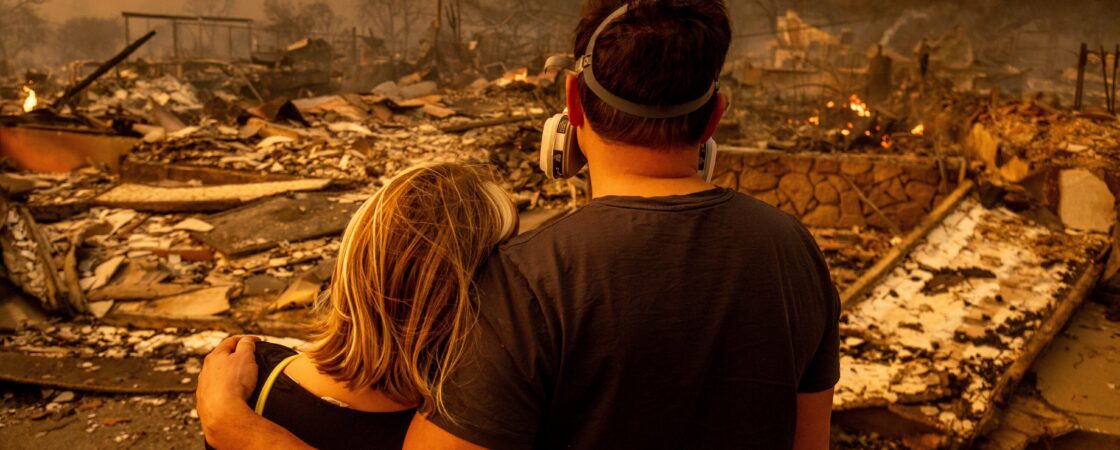On Tuesday night, Jane Brown saw a large condominium complex in the Pacific Palisades area of Los Angeles burning on television. It was the home of her 92-year-old mother. By Wednesday morning, Ms. Brown, 63, observed that the building was “entirely gone.” Iris Kameny, the mother of Ms. Brown, had relocated to Chino, California. , in front of the fire, but valuable family photographs and artwork were destroyed, along with some furniture belonging to Mrs. Kameny bought her property around the time of her marriage in 1959. The Palisades fire and the Eaton fire, which have devastated homes and neighborhoods in the Los Angeles area this week, are believed to be some of the most destructive fires in the city’s history. Experts caution that the fires have endangered numerous residents, especially individuals like Mrs. Kameny individuals have lost their homes, facing the risk of significant and enduring mental health effects. “Losing a home, experiencing displacement, struggling to rebuild, and living with the fear that it could happen again all contribute to long-term psychological damage for many people,” stated Dr. David P. Eisenman, a primary care physician and director of the U.C.L.A. Center for Public Health and Disasters. Research indicates that individuals who do not lose their homes may still experience anxiety, depression, or psychological distress for years following a wildfire’s end. Since 2020, California’s most devastating wildfires have caused the destruction of over 10,000 homes, businesses, and other structures, based on information from the California Department of Forestry and Fire Protection. For those who experienced home loss in prior California wildfires, the recent disaster in Los Angeles has triggered renewed anxiety. We are currently having difficulty accessing the article content. Please enable JavaScript in your browser settings. Thank you for your patience as we confirm access.




